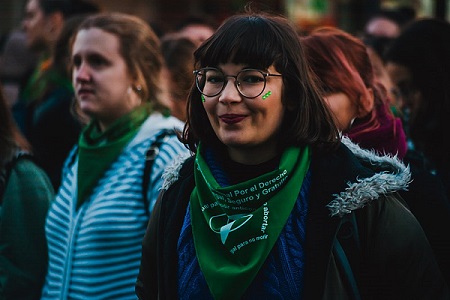
Argentina’s President Alberto Fernández has said he will send a bill to legalise abortion to Congress within the next 10 days.
Mr Fernández, who was sworn in as president in December, has previously described abortion as “a matter of public health”.
In Argentina, abortion is allowed only in cases of rape, or if the mother’s health is in danger.
It is largely prohibited across Latin America, except in restricted cases.
If the bill is passed, Argentina will become the largest country in the region to legalise abortion.
“Abortion happens, it’s a fact,” the president said in his first annual address to Congress.
“A state should protect citizens in general and women in particular. And in the 21st Century, every society needs to respect the individual choice of its members to decide freely about their bodies.”
Mr Fernández also promised to introduce a programme to improve sex education.
A previous attempt to change the law in Argentina, where the population is overwhelmingly Roman Catholic, failed.
- The women protesting in the Argentina abortion debate
- No going back: The two sides in Argentina’s abortion debate
In 2018, a bill to legalise abortion within the first 14 weeks of pregnancy was narrowly approved by Congress, but was later rejected by the country’s Senate.
Unlike last time, however, the country’s president is behind the bill.
Rape victim
The debate surrounding abortion in Argentina was reignited in February last year, when an 11-year-old rape victim gave birth by C-section.
The girl, who had been raped by her grandmother’s 65-year-old partner, had requested an abortion but the procedure was repeatedly delayed over questions about the identity of her guardian.
Cuba, Uruguay and Guyana are currently the only Latin American countries to permit abortion in the first weeks of pregnancy.
While some other countries allow abortion in the case of rape or risk to the mother’s life, it is completely banned in El Salvador, Honduras, Nicaragua and Haiti.
In El Salvador, dozens of women have been imprisoned for the deaths of their foetuses in cases where they say they suffered miscarriages or stillbirths.
Source: bbc.co.uk





Be the first to comment